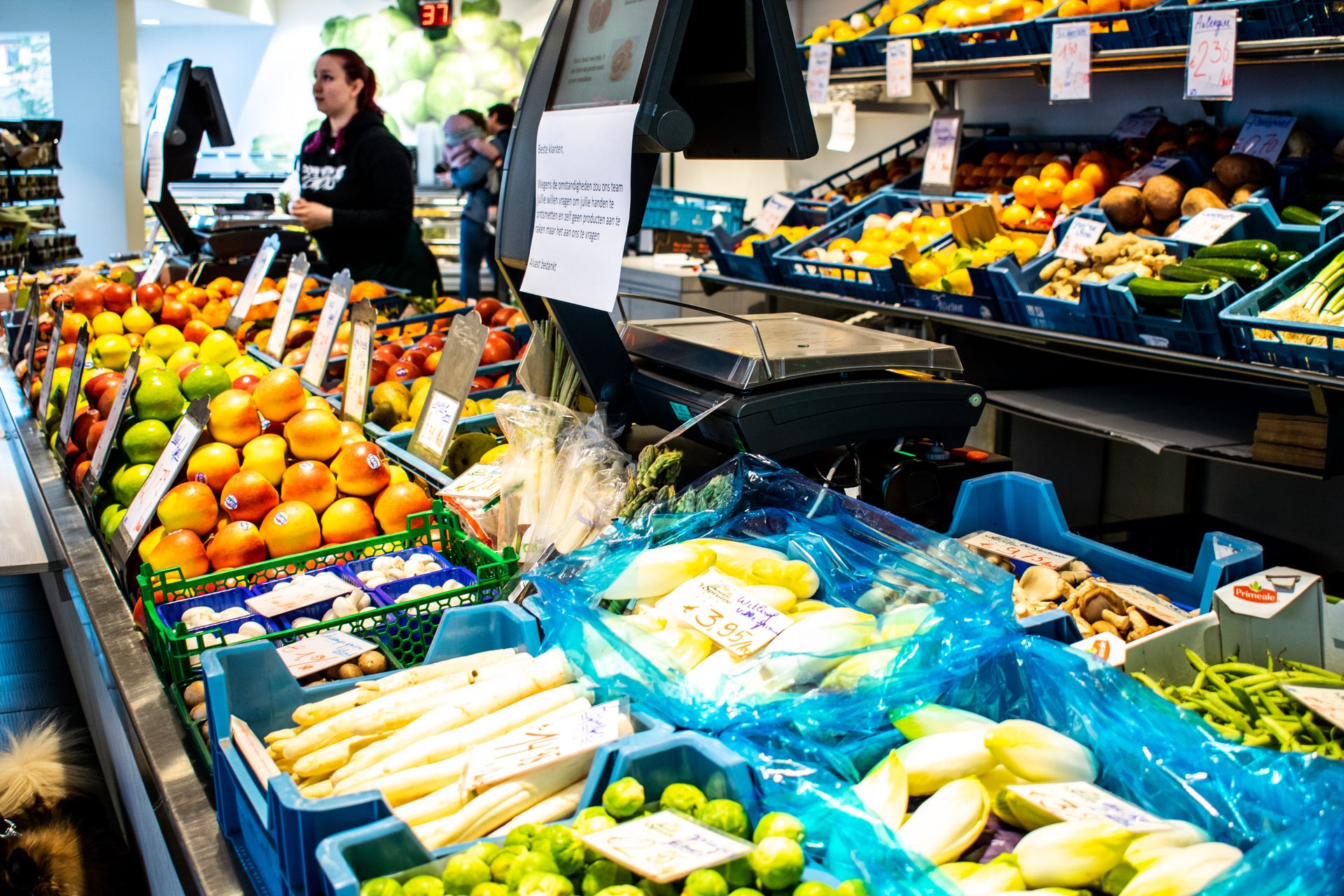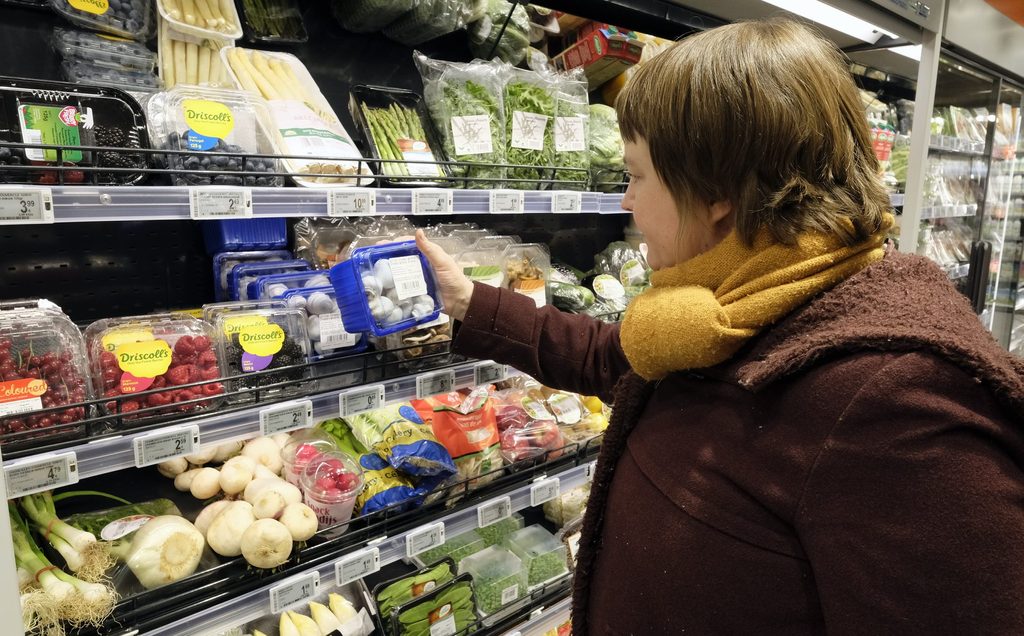The prices charged by supermarkets in Belgium remain around 15% higher on average than this time last year, but there is no Belgian anomaly in price trends, a recent analysis showed.
Consumer rights organisation, Test Achats, has calculated inflation figures for supermarket products every month since prices suddenly started rising sharply about a year and a half ago. It has announced that, based on August prices, the supermarket inflation rate is currently 14.7%. While this is much lower than the peak of 20% recorded in March, the fall is only very slowly going in the right direction, the group argued.
"This means consumers are paying on average 15% more in supermarkets compared to the same time last year; inflation was already particularly high last year," the organisation said in a statement. "Compared to August 2021, we are now paying 28.7% more on average, despite falling prices of raw materials and energy on international markets."
The prices of vegetables (+31%), especially carrots (+70%) and onions (+55%), as well as ketchup (+49%), tomato purée (+41%) and frozen chips (+39%) have recorded the largest increase in recent months. Paper goods such as paper tissues, toilet paper and kitchen rolls also remain very expensive.
No exception to the rule
Test Achats has been calling for action for months: earlier this year, it called for an investigation into 'greedflation' (the tendency for companies to boost profits during inflationary periods through unnecessary price hikes), but argued that it is "encountering passivity from the government."
Federal Minister of the Economy Pierre-Yves Dermagne did announce in June that he expected food producers to reach an agreement on bringing down supermarket food prices by mid-July at the latest, as these prices remained high despite the already ongoing drop in the cost of commodities – an argument that was rejected by supermarket chains.

The prices of vegetables have soared in recent months. Credit: Belga / Charlotte Gekiere
To respond to the sector's "lack of vigour" in the face of inflation in certain products he also launched a monthly monitoring by the Prices Observatory. The aim was to follow up on progress and to be "particularly vigilant over large price differences" between Belgium and its neighbouring countries.
However, the results of this analysis have now been published by the Minister, showing that price trends in Belgium do not demonstrate any anomalies when compared with neighbouring countries. "Price increases are high in Belgium, but our neighbouring countries have experienced similar increases. Germany the most, France the least, and Belgium and the Netherlands are in the middle ground," Dermagne said in a statement.
Continued monitoring
The experts focused on several product groups: bread, other baked goods, flour, pasta, beef, pork, charcuterie, milk, cheese and sugar. These different categories make it possible to establish links and make projections between the three stages of the food chain (raw materials, processing and consumption).
Dermagne explained that, unlike in the three neighbouring countries, wages and benefits quickly adjusted to the rising cost of living due to automatic indexation in Belgium. "This has helped companies maintain their reduced margins rather than driving inflation through increased margins and profits as we have seen in some other countries."
He added that, at present, there are "no indications of abnormal price evolutions in Belgium compared to neighbouring countries, but monitoring will continue in the coming months."
Two similar studies are expected in the coming months: one by the Price Observatory in the autumn and one by the Belgian Competition Authority this winter.
Related News
- Delhaize attempts to win back customers by lowering price of over 100 products
- Supermarket prices in Belgium stabilise, but many products still more expensive
The first will look into why there are price differences between Belgian supermarkets and supermarkets in neighbouring countries. The second, meanwhile, will compare a wide range of prices between Belgium and the three neighbouring countries over a long period (between 2013 and 2022). Next year, the Observatory will continue its analysis of other products, including energy and baby products, where large margins are suspected.
Unlike in France, where the price of 5,000 products was capped last week, the Minister for the Economy does not have the power to freeze grocery prices, and only the BMA can proceed with a temporary price freeze in case of anomalies.
A bill from the Socialist Party (PS) to impose a price freeze or minimum price is being considered by the Chamber of Deputies. However, it has not yet received a sufficient majority from coalition partners CD&V and Open VLD, and it is therefore unlikely that it will be implemented.

